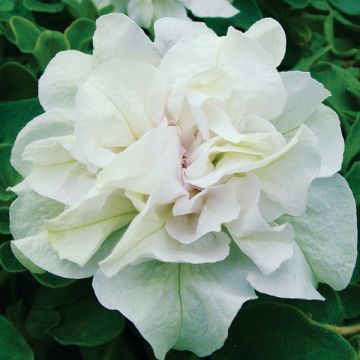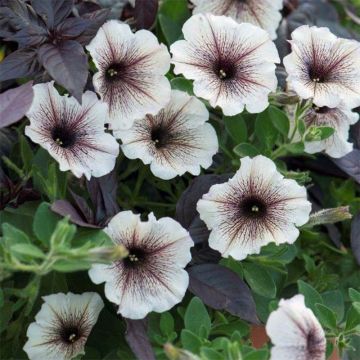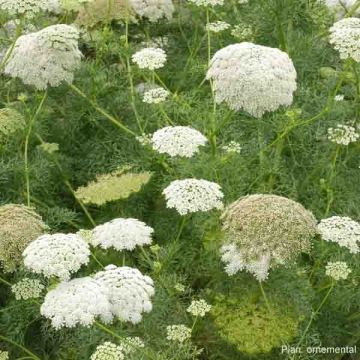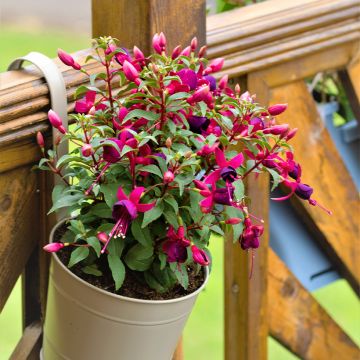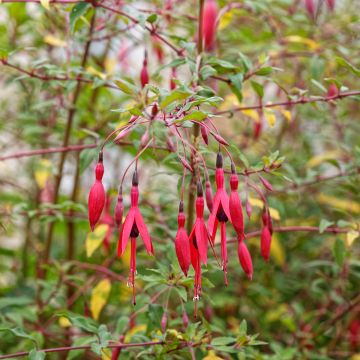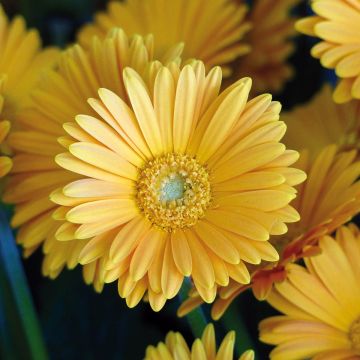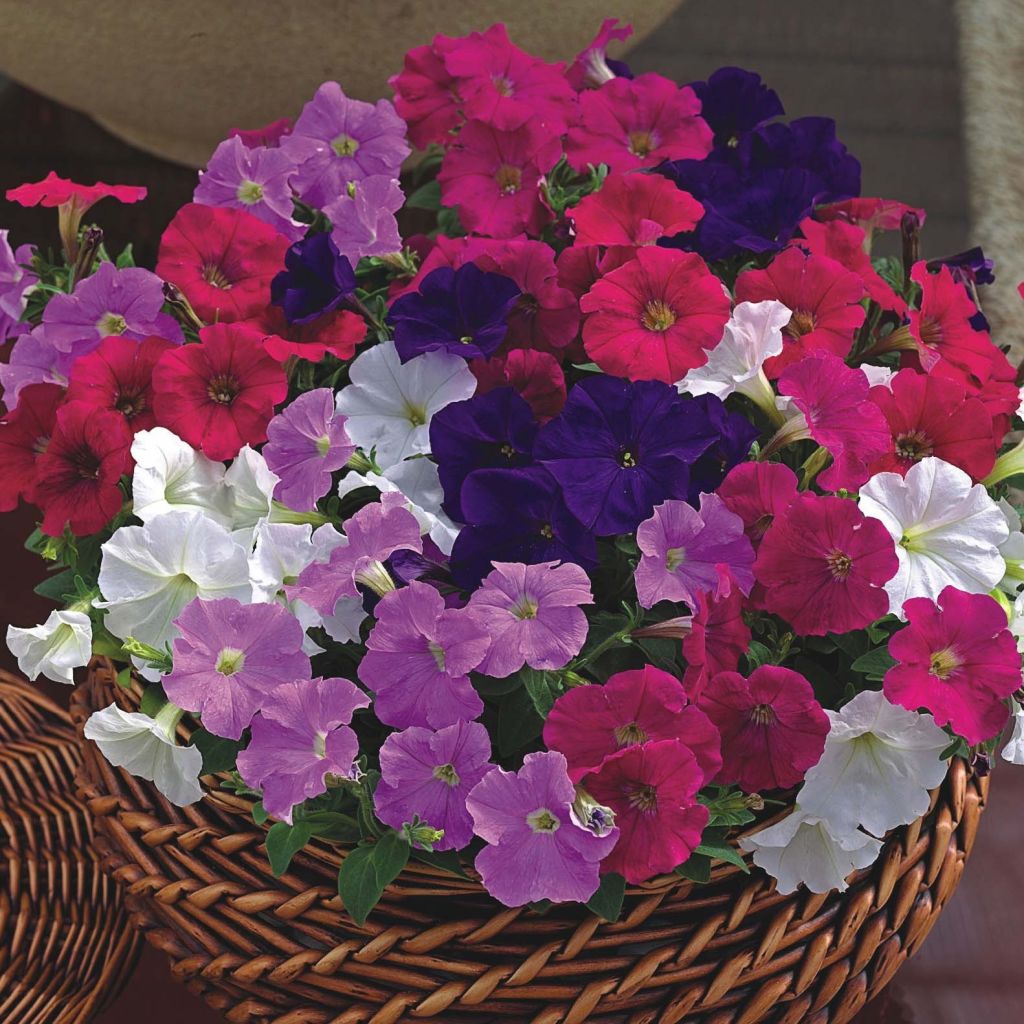

Petunia milliflora Picobella Cascade
Petunia milliflora Picobella Cascade
Petunia milliflora Picobella Cascade
Petunia
Special offer!
Receive a €20 voucher for any order over €90 (excluding delivery costs, credit notes, and plastic-free options)!
1- Add your favorite plants to your cart.
2- Once you have reached €90, confirm your order (you can even choose the delivery date!).
3- As soon as your order is shipped, you will receive an email containing your voucher code, valid for 3 months (90 days).
Your voucher is unique and can only be used once, for any order with a minimum value of €20, excluding delivery costs.
Can be combined with other current offers, non-divisible and non-refundable.
Why not try an alternative variety in stock?
View all →This plant carries a 6 months recovery warranty
More information
We guarantee the quality of our plants for a full growing cycle, and will replace at our expense any plant that fails to recover under normal climatic and planting conditions.
Would this plant suit my garden?
Set up your Plantfit profile →
Description
Petunia milliflora 'Picobella Cascade' is one of the first pendulous mini-petunias. This selection brings together plants with a naturally branching and spreading habit, whose stems are covered with single flowers in various colours of red, purple, lavender mauve, sky blue, soft pink, coral pink, salmon or white depending on the plants. They are also very early varieties, capable of flowering from May until the first frost. Whether used alone or in combination with other flowers in summer compositions and hanging baskets, Picobella Cascade petunias are essential for bringing the terrace or balcony to life for 6 months. They are easy annuals to grow in the sun, in fertile, light and moist soil.
Hybrid petunias are all derived from several plants native to the warm regions of South America. Petunia milliflora 'Picobella Cascade' belongs to the Solanaceae family and is close to ornamental tobacco in particular, its foliage also containing alkaloids. This variety quickly forms a dense spreading clump, with trailing stems, 25 cm (9.8 in) in height and 40-50cm in diameter, naturally well-groomed until the end of the season. The plant is in bloom from May to October, provided it is watered well and regularly supplied with fertiliser. Its cup-shaped flowers are small in size, but numerous and tightly packed together on small dense foliage. The leaves, quite downy with entire edges and of a medium green colour, are vigorous and healthy.
No other annual flowering plant has undergone such intense selection by breeders for such a long period. The results are impressive, as petunias compete with pelargoniums for the splendour and length of their flowering period, as evidenced by this recent selection. Install these petunias in large pots or hanging baskets for stunning results. You can also plant them in borders to punctuate grey foliage plants such as cerastium, sea cineraria, or artemisia. To stand out, plant several together to create an original ground cover at the base of other plants, playing with harmony or colour contrasts.
Please note that our young plants in mini-plugs are professional products intended for experienced gardeners: upon receipt, transplant and store them under shelter (veranda, greenhouse, frame) at a temperature above 14C° for a few weeks before planting outside once all risk of frost has passed.
Report an error about the product description
Petunia milliflora Picobella Cascade in pictures


Flowering
Foliage
Plant habit
Botanical data
Petunia
milliflora
Picobella Cascade
Solanaceae
Petunia
Cultivar or hybrid
Other Petunia and Surfinia
View all →Planting and care
Petunias can be planted in open ground or in pots. If planting in open ground, wait until the last heavy frosts have passed (they will tolerate a minor late frost). In the meantime, you can pre-cultivate them in a pot in a warm and bright place to accelerate their growth. Petunias will flower from May-June to October. Plant them out in a sunny or partially shaded site sheltered from the wind. They need a light, humus-rich but above all well-drained soil. Do not water them too much at the beginning of the growing season as they are sensitive to excess moisture. They tolerate drought well, but will need regular watering during hot summer weather. Very floriferous and fast-growing, they are hungry plants. We recommend feeding them with liquid fertiliser once or twice a week during the growing period. Remove faded flowers and dry leaves as they appear to keep them looking attractive and to prolong flowering.
Planting period
Intended location
Care
This item has not been reviewed yet - be the first to leave a review about it.
Similar products
Haven't found what you were looking for?
Hardiness is the lowest winter temperature a plant can endure without suffering serious damage or even dying. However, hardiness is affected by location (a sheltered area, such as a patio), protection (winter cover) and soil type (hardiness is improved by well-drained soil).

Photo Sharing Terms & Conditions
In order to encourage gardeners to interact and share their experiences, Promesse de fleurs offers various media enabling content to be uploaded onto its Site - in particular via the ‘Photo sharing’ module.
The User agrees to refrain from:
- Posting any content that is illegal, prejudicial, insulting, racist, inciteful to hatred, revisionist, contrary to public decency, that infringes on privacy or on the privacy rights of third parties, in particular the publicity rights of persons and goods, intellectual property rights, or the right to privacy.
- Submitting content on behalf of a third party;
- Impersonate the identity of a third party and/or publish any personal information about a third party;
In general, the User undertakes to refrain from any unethical behaviour.
All Content (in particular text, comments, files, images, photos, videos, creative works, etc.), which may be subject to property or intellectual property rights, image or other private rights, shall remain the property of the User, subject to the limited rights granted by the terms of the licence granted by Promesse de fleurs as stated below. Users are at liberty to publish or not to publish such Content on the Site, notably via the ‘Photo Sharing’ facility, and accept that this Content shall be made public and freely accessible, notably on the Internet.
Users further acknowledge, undertake to have ,and guarantee that they hold all necessary rights and permissions to publish such material on the Site, in particular with regard to the legislation in force pertaining to any privacy, property, intellectual property, image, or contractual rights, or rights of any other nature. By publishing such Content on the Site, Users acknowledge accepting full liability as publishers of the Content within the meaning of the law, and grant Promesse de fleurs, free of charge, an inclusive, worldwide licence for the said Content for the entire duration of its publication, including all reproduction, representation, up/downloading, displaying, performing, transmission, and storage rights.
Users also grant permission for their name to be linked to the Content and accept that this link may not always be made available.
By engaging in posting material, Users consent to their Content becoming automatically accessible on the Internet, in particular on other sites and/or blogs and/or web pages of the Promesse de fleurs site, including in particular social pages and the Promesse de fleurs catalogue.
Users may secure the removal of entrusted content free of charge by issuing a simple request via our contact form.
The flowering period indicated on our website applies to countries and regions located in USDA zone 8 (France, the United Kingdom, Ireland, the Netherlands, etc.)
It will vary according to where you live:
- In zones 9 to 10 (Italy, Spain, Greece, etc.), flowering will occur about 2 to 4 weeks earlier.
- In zones 6 to 7 (Germany, Poland, Slovenia, and lower mountainous regions), flowering will be delayed by 2 to 3 weeks.
- In zone 5 (Central Europe, Scandinavia), blooming will be delayed by 3 to 5 weeks.
In temperate climates, pruning of spring-flowering shrubs (forsythia, spireas, etc.) should be done just after flowering.
Pruning of summer-flowering shrubs (Indian Lilac, Perovskia, etc.) can be done in winter or spring.
In cold regions as well as with frost-sensitive plants, avoid pruning too early when severe frosts may still occur.
The planting period indicated on our website applies to countries and regions located in USDA zone 8 (France, United Kingdom, Ireland, Netherlands).
It will vary according to where you live:
- In Mediterranean zones (Marseille, Madrid, Milan, etc.), autumn and winter are the best planting periods.
- In continental zones (Strasbourg, Munich, Vienna, etc.), delay planting by 2 to 3 weeks in spring and bring it forward by 2 to 4 weeks in autumn.
- In mountainous regions (the Alps, Pyrenees, Carpathians, etc.), it is best to plant in late spring (May-June) or late summer (August-September).
The harvesting period indicated on our website applies to countries and regions in USDA zone 8 (France, England, Ireland, the Netherlands).
In colder areas (Scandinavia, Poland, Austria...) fruit and vegetable harvests are likely to be delayed by 3-4 weeks.
In warmer areas (Italy, Spain, Greece, etc.), harvesting will probably take place earlier, depending on weather conditions.
The sowing periods indicated on our website apply to countries and regions within USDA Zone 8 (France, UK, Ireland, Netherlands).
In colder areas (Scandinavia, Poland, Austria...), delay any outdoor sowing by 3-4 weeks, or sow under glass.
In warmer climes (Italy, Spain, Greece, etc.), bring outdoor sowing forward by a few weeks.
































